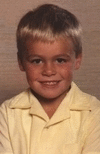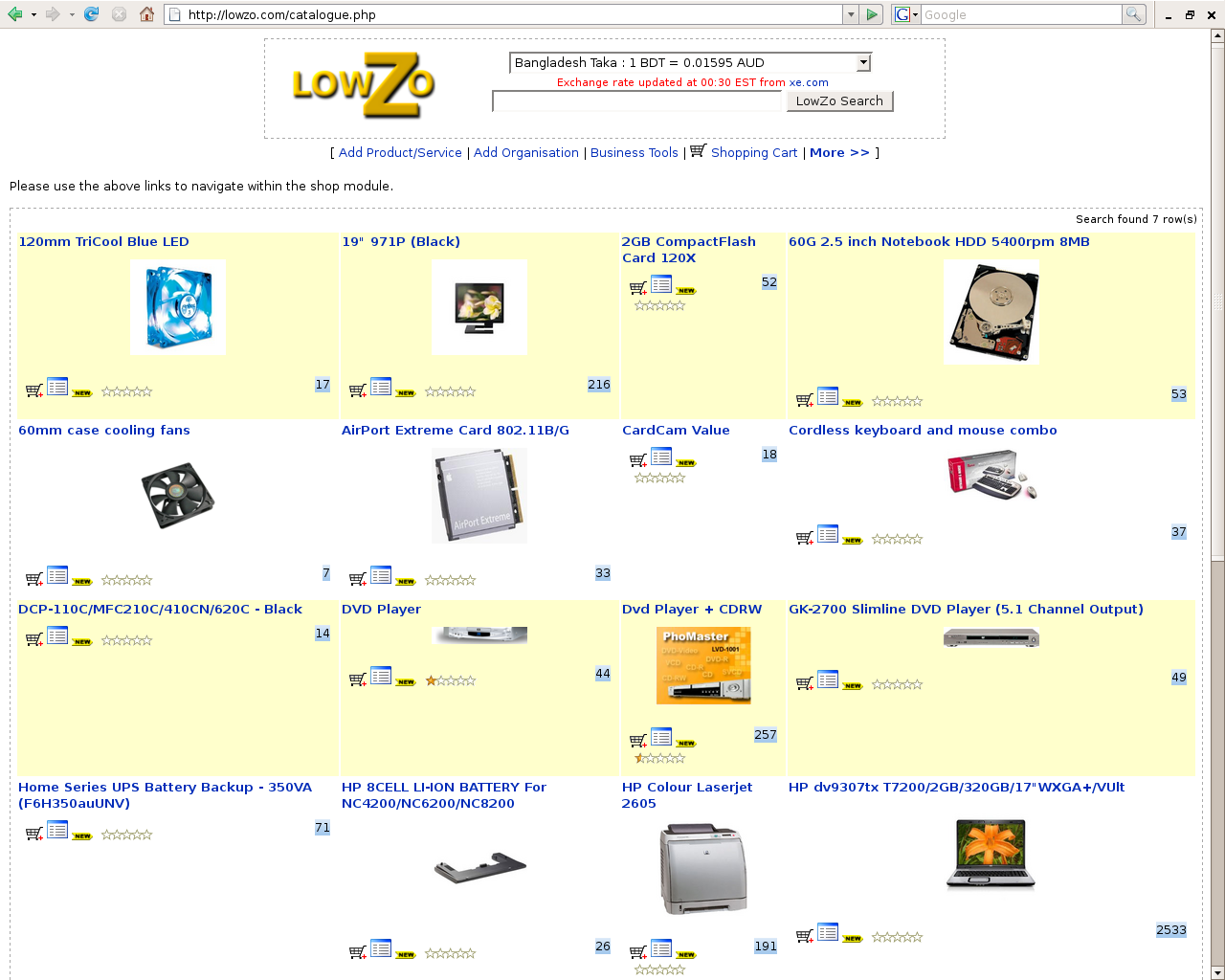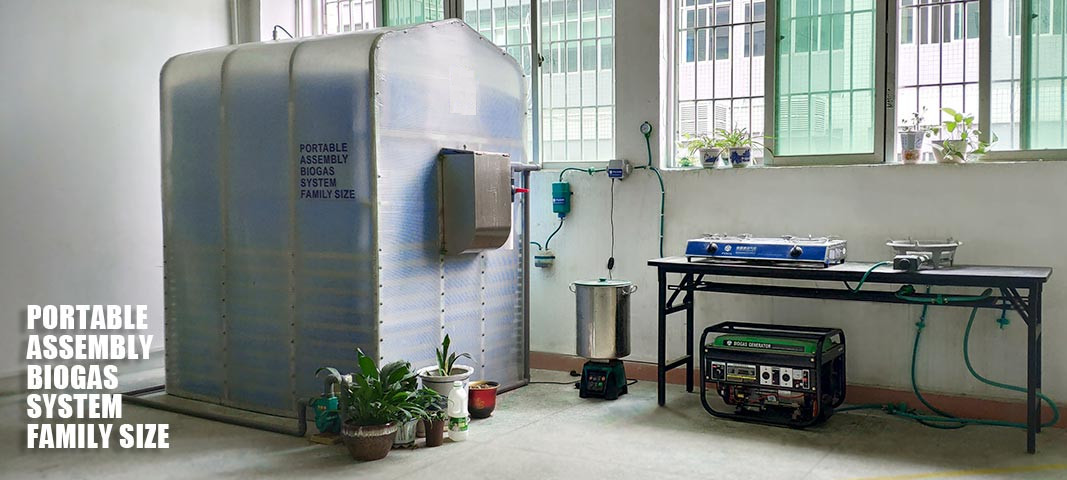|
.: Luke Cole - Home Page :.
(This site hasn't had many changes since 2013) (older version: lc.homedns.org 2003-2005) (long-standing biz: eteckonline.com 2001-2004, coletek.homedns.org 2005-2006, evolved to coletek.org 2007+) (other early online webapps here) |


|
This site is the home page of Luke Scott Cole. His highest level of education is a double degree - Bachelor of Engineering with honours in Mechatronics, and Bachelor of Information Technology with honours in Software Engineering. Luke Cole has a history as the "go to man" for many colleagues/firms and well known to have "a knack for making things work". Luke Cole is a scientist, systems engineer, roboticist, with a cross-pollination and broad range of experience and skills in mechatronics and software engineering. He loves to play with robots, Linux, software, electronics, computer networks/security, penetration testing, web development, among other tech. Luke Cole also has a good handle of cosmology, historiography, and the multi-disciplinary field of analytical psychology, that contains Luke's other special interests of biology and philosophy. Luke Cole completed high level maths from 2 unit, 3 unit, and 4 unit mathematics with Geordie Williamson (FRS, FAA) at Chevalier College in Borwal, NSW. In 1999 - Luke acheived 2nd place behind Geordie in 4 units mathematics, and ranked 658th position in the entire state NSW (top 9% in the state with a mark of 96%). Also received Young Scientist Award in year 10 (1997) sponsored by The Sydney Morning Herald and the Sydney Powerhouse Museum. And a distinction for a TAFE Certificate I in Electronics Technology at Wollongong University during year 11 and year 12. Had to drive about 1hr each way weekly from home town Southen Highlands. Luke later when on to do a double degree at Australian National University (ANU) in Mechatronics Engineering and Software Engineering, while continuing to work at the "Robotics System Lab" at the ANU, as their "go-to-man" workshop monkey for electronics, mechanics and software projects.
Luke Cole was hired by pioneers of robotics and computer vision
such as Alex
Zelinsky (AO,
FAA,
FTSE,
FRSN),
and Richard
Hartley (FAA),
among others from the age of 17 years old in 1998, for 10 years,
within leading bodies such as "Robotics Systems Lab" at ANU, Seeing
Machines, NICTA (now called CSIRO Data61), and CSIRO. He later
when on to work for leading organisations such as Hemisphere GPS (formerly
BEELINE, and now acquired by AgJunction).
He was also a member of the Queensland University of Technology
(QUT) Engineering Course Advisory Group.
The founder of COLETEK PTY LTD,
a professional technologies business.
The primary developer of a NICTA
project: The InsectBot robot.
He was also a primary developer of DROS, a robotic software library.
The new leading maintainer of Here you find links to all Luke Cole's web sites and major projects along with:
Users can also find information about accessing Luke Cole network data and email and authorized users can control features of the Luke Cole's network such as toggling power to computers. 2003 - A Personal Note From Luke ColeIf your in the robotics field, I don't blame you - robotics is the ultimate engineering task, however I would also say it is the ultimate scientific challenge! Robots, of various types exist within the world today and more organisations are joining the field each year. I remember when I was younger thinking a VCR was pretty cool, but a walking and talking VCR, now that's COOL. I guess that's why I find robotics so interesting, along with the fact it's the greatest type of technology around, since it involves electronics, mechanics, software, computing and the challenge of understanding the great unknowns of life. Do you watch nature shows? Well I tell you, the more I understand the way the world works, the more I understand how to build robots. Like animals, robots need sensors to understand the world. So the more researchers understand animals and the environment, the more researchers learn how to develop robots. An interesting thought about this is: the more discovered from robotics research the more we understand animals, humans and the environment, which in a sense is life. The answer to understanding life is one of those fundamental questions like "Why are we here?, What is our purpose?", which humans have tried to answer since our existence, which makes robotics research so fascinating. While trying to answer those fundamental questions, such as "Why are we here?", "Who are we?" and "How does this world work?", is extremely fascinating, I believe there is more to life then just trying to understanding it. I believe there is something to be said about the statement "Ignorance is bliss". A simple example is: as humans the more we learn how to make our life easier, it is usually at the cost of our planet. However, I bring this statement up because as individuals, some of us work ourselfs at the cost of our health and life experience. It is clear our health is most important in our life, so there should be a balance of work and pleasure in our life, if not more pleasure. Please understand the term 'pleasure' here does not mean sitting down doing nothing (e.g. watching tv). Instead it should be thought of as doing an activity that brings a smile to your face (e.g. traveling, swimming, fishing, etc). While some work can be a pleasure, excess of anything is bad, including pleasure. This is because an excess of anything develops into addiction, which is what makes an excess of anything bad. Currently scientists now believe the core addiction for humans is pleasure addiction, because (in simple terms) what we are addicted too gives us pleasure. Getting to my point: ignoring our work and these fundamental questions during our lives, or at certain times, or to some level within our lives, can greatly benefit our health and life experience, and you never know that maybe the true and only way to understanding life.
- Embrace and Enjoy Life -
"There is no point knowing anything, if you have never experienced anything. If you have never experienced anything, you have never lived. If you have not lived, you know everything." THINK ABOUT IT 1990-2010 - DIY Home Labs2001 - ETECK/COLETEK Founded2003 - Australia's first marketplace - LowZo aka "Purchase Engine"Early 2000's we focused on software solutions as it's less risk, cost and easy to scale. For some of these webapps please see the following webpage. However most notability was LowZo.com. https://development.coletek.org/web_development/ 2010 - World First FULL Tractor Automation (aka One-Touch)2013 - Mobile Autonomous Robot for German Car ManufacturesLuke was contracted to fly overseas to both Pakistan and ALL German Car Manufacturers to development a low platform mobile autonomous robot. 2013 - "Get Tha Net!" - Tha family is eating good tonight!What a catch! Only had 6 live bait (a mate caught with the cast net), 3 rods (2 of them broken), no tackle, raining and windy as. After losing two of the live bait, and losing all the tackle from of the 2 rods (my mate almost drowned trying to get his tackle back - all his clothes and phone got very wet) - I caught the biggest flat head seen on the coast (63cm), with the last broken rod. Good day at the office! 2016 - Nine News TV-first on "Cracking a volunteers house wireless internet"Luke was paid by Nine News to demostrate cracking wireless internet live on TV for the first time. 2017 - Talk on "Robotics in Road Construction" at the Melbourne Convention Centre, and AAPA/AFPA national tourLuke was asked to explore what the future might look like for road contruction with a focus on the flagger and traffic dones. Luke was then paid as a speaker and pannelist to showcase the works during the 2016 AAPA/AFPA national tour, and a year later was asked to do a reduced version at the Connect Expo 2017 at the Melbourne Convention Centre. 2022 - COLETEK's first product to help the world issues - Biogas DigesterAfter decades of building prototypes/products for clients. We are starting to develop prototypes/products for us. So please welcome COLETEK's first of many products to help the world's issues - it's a biogas digestor with minimal/zero electronics. It will take your organic waste and turn it into energy. Input items like food waste, manure, grass clippings, paper, etc. The output is biogas and liquid fertilizer. It has now completed the R&D process, has been trialed across Australia, and is now ready for sale. For more info see the below link that discusses biogas, our solution (including how it can replace your septic tank), and a good discussion about the climate change debate, renewable energy debate, and why we can predict a distant global future with more likelihood than prediction/control of weather over the next 7 days. Please visit https://www.coletek.org/biogas/ 2023 - COLETEK's first system to help the world issues (aka The Clean Earth Bot System)Please welcome COLETEK's second product to help the world's issues - a self-driving wheelbarrow that can be used for many applications accoss various domains, allowing a wider market to drive sales and development of the Clean Earth Bot. Clean Earth Bot collects manure via a robot, then takes it to a onsite local digester for processing that produces organic fertiliser for the robot to collect and spread back through the paddocks. For more info see the below link: Please visit https://www.cleanearthrobotics.com 2024 - A Short Story By AI-me: "The Infinite Quest: A Journey Through Time and Knowledge"A short story generated by the AI version of Luke Cole trained on his personal notes (250k words) written from 2011 to 2024 on wiki.coletek.org. We'll title this story "The Infinite Quest: A Journey Through Time and Knowledge". Once upon a time, in a universe born from the fiery explosion of the Big Bang, existence began as a dance of particles. Over billions of years, stars ignited, planets formed, and among them was Earth—a small blue dot that became home to life. In this ever-evolving cosmic timeline, humanity emerged, curious, creative, and always reaching for the unknown. As humans gazed up at the stars, they sought to understand their place in the cosmos. Ancient civilizations, like the Egyptians and the Greeks, built monumental structures and tools—some say with forgotten technologies, perhaps even manipulating sound to move giant stones. They mapped the heavens with knowledge that seems almost mystical today, as evidenced by artifacts like the Antikythera mechanism, an ancient computer that tracked the movement of planets. But mysteries of the Earth were just as deep as the skies. Civilizations like the Indus Valley and the Anasazi vanished, leaving behind only whispers of their stories, their reasons for disappearing still unknown. In far-flung deserts, strange rocks sailed across the ground, and lights danced in the skies before earthquakes, defying explanation. As centuries passed, the human quest for knowledge grew more sophisticated. The dawn of the scientific revolution brought with it discoveries that peeled back the layers of reality itself. Quantum mechanics revealed that the fabric of the universe was stranger than ever imagined—particles could be in two places at once, entangled across vast distances, acting as if bound by invisible threads. In the modern age, this thirst for discovery was matched by an unprecedented mastery over technology. Humans learned to harness the power of machines, creating artificial intelligence that could think and learn in ways that mirrored their own minds. But even AI had its mysteries. As machines generated art, music, and stories, questions arose: were these creations truly "creative," or were they mere reflections of patterns in data? On Earth, innovation soared to new heights with 3D printers capable of creating everything from everyday objects to medical devices and even houses. Some dreamed of using this technology to build entire cities on Mars, while others tinkered in their garages, crafting robots capable of navigating unknown terrains or hacking to test the limits of the arts of everything. Yet, with all this progress, ancient questions remained. What was consciousness? Neuroscientists discovered that the human brain could simulate time, predicting the future in real-time to give us our sense of reality. But the "hard problem" of consciousness—why we feel what we feel—remained elusive, as mysterious as it was in the days when philosophers first pondered the soul. In laboratories and universities, thinkers explored the possibility of parallel universes, where every decision we made branched off into an alternate reality. Could it be that somewhere, in a different dimension, other versions of ourselves were living out entirely different lives? And all the while, nature continued to defy understanding. Deep in the ocean, bioluminescent creatures glowed in the darkness, hinting at ecosystems we had barely begun to explore. In the jungles, plants communicated through underground networks of fungi, and some began to suspect that even plants might possess a kind of awareness. As humanity stood on the precipice of a new era, poised between the known and the unknown, they were reminded of a simple truth: the universe was vast and full of secrets. Each discovery only led to more questions, and in that endless search, the adventure of knowledge would never end. In this cosmic narrative, from the birth of stars to the rise of AI, from lost civilizations to future Martian cities, everything was connected. The past, present, and future were all part of the same grand story—a story written by the hands of the curious, the dreamers, and the seekers of truth. 
|
|||||||||||||||||||||||||||||||||||||||||||||||||||||||
|
© 2000-2024 Luke Cole All rights reserved |



